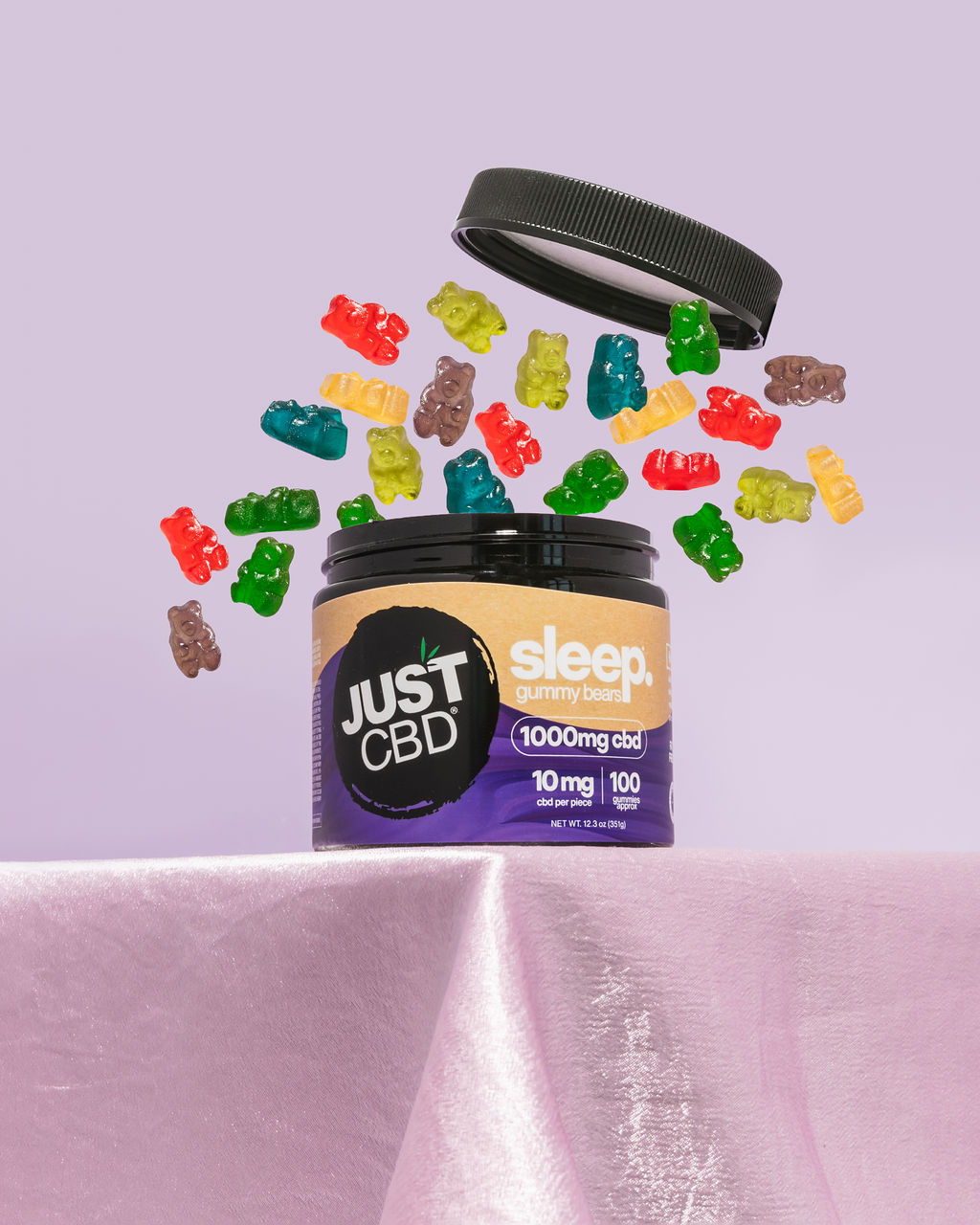Legal Status of Kratom Gummies by State
Kratom, a herbal supplement derived from the Mitragyna speciosa tree, has gained popularity for its potential mood-boosting and pain-relieving effects. As kratom’s use grows, so too does the complexity surrounding its legal status. One increasingly popular form of kratom consumption is through gummies. Determining whether kratom gummies are legal in your state can be a confusing task due to varying regulations across the country.
Federal Regulations
The legality of kratom gummies varies significantly from state to state. Some states have outright banned kratom, while others have legalized it with certain restrictions. The federal government has not yet taken a definitive stance on kratom’s legal status, but it is currently classified as a “drug of concern” by the Drug Enforcement Administration (DEA).
While some states allow kratom gummies, there are often restrictions regarding potency, labeling, and sales to minors. It is important to check your state’s specific laws before purchasing or consuming kratom gummies.
Additionally, even in states where kratom is legal, local municipalities may have their own ordinances prohibiting its sale or consumption.
State-Specific Laws
The legality of kratom gummies varies significantly from state to state. For example, Alabama, Arkansas, Indiana, Rhode Island, and Vermont have all outright banned kratom in some form. In contrast, states like California, Colorado, and Florida allow kratom sales with varying restrictions. Some states have adopted more restrictive measures, such as limiting the amount of kratom that can be sold per transaction or requiring retailers to obtain special licenses.
Several states have enacted legislation specifically addressing kratom gummies. For example, Tennessee prohibits the sale of any kratom product containing synthetic cannabinoids, which may be present in some gummies. In other states, such as Georgia and Wisconsin, kratom is legal but regulations regarding labeling and sales are still being developed.
It’s essential to consult your state’s specific laws and local ordinances before purchasing or consuming kratom gummies. You can often find this information on the websites of your state’s health department or attorney general’s office.
Where to Find Legally Sourced Kratom Gummies
Navigating the legal landscape surrounding kratom gummies can be challenging due to varying regulations across states. While some states have legalized kratom with specific restrictions, others have imposed bans or are in the process of establishing guidelines. Understanding the legal status of kratom gummies in your state is crucial before purchasing or consuming them to ensure compliance with local laws.

Reputable Online Retailers
Finding legally sourced kratom gummies requires careful attention to regulations as they vary significantly by location. Reputable online retailers often specialize in kratom products and adhere to strict quality control measures. When searching for these retailers, prioritize those that clearly display their sourcing practices, lab testing results, and any relevant certifications.
Look for online retailers that offer detailed product information, including the specific strains of kratom used, dosage per gummy, and potential effects. Transparency in labeling and ingredient lists is crucial for ensuring product quality and safety.
Customer reviews can provide insights into a retailer’s reliability and the quality of their products. Pay attention to feedback regarding shipping practices, customer service, and overall satisfaction with the kratom gummies.
Local Head Shops and Smoke Shops
Locating legally sourced kratom gummies often involves navigating local regulations. Local head shops and smoke shops can sometimes carry kratom products, but it’s essential to confirm their legality in your state and municipality.
When inquiring at these establishments, be sure to ask about the origin of their kratom, any associated certifications, and their compliance with local ordinances. Reputable vendors will be transparent about their sourcing practices and product testing.
Considerations When Purchasing Kratom Gummies
Kratom gummies have become a popular way to consume this herbal supplement, but their legal status varies widely across the United States.
Dosage and Potency

When purchasing kratom gummies, it’s crucial to consider the dosage and potency. Kratom comes in different strains with varying levels of alkaloids, which are the compounds responsible for its effects. Gummies typically contain a standardized dose of kratom powder, but the actual amount can vary between brands and products.
Start with a low dose and gradually increase it as needed to gauge your individual tolerance and response. It’s essential to pay attention to your body’s reactions and adjust accordingly.
Be aware that kratom gummies can have different effects depending on the strain and dosage. Some strains are known for their energizing properties, while others may promote relaxation or pain relief.

It’s important to choose a reputable brand that provides clear information about the strain, potency, and ingredients used in their gummies.
Ingredients and Manufacturing Practices
When purchasing kratom gummies, it is essential to carefully consider the ingredients and manufacturing practices employed by the producer. Look for products made with high-quality, ethically sourced kratom powder. Reputable manufacturers will clearly list the strain of kratom used and disclose any additional ingredients, such as sweeteners, flavors, or preservatives.
The manufacturing process should prioritize safety and quality control. Gummies should be produced in a facility that adheres to good manufacturing practices (GMP) to ensure proper sanitation, handling, and packaging.
Transparency is crucial. Reputable brands will provide information about their sourcing practices, including the origin of the kratom and any third-party testing conducted to verify potency and purity.
Be cautious of gummies that contain artificial ingredients, fillers, or unknown additives.
Third-Party Lab Testing
When purchasing kratom gummies, it is crucial to prioritize those that have undergone third-party lab testing. Third-party lab testing involves an independent laboratory analyzing the product for potency, purity, and the presence of contaminants.
This ensures that the gummies contain the expected amount of kratom alkaloids and are free from harmful substances like heavy metals or pesticides. Look for products with certificates of analysis (COAs) readily available online or upon request from the manufacturer.
Potential Risks and Side Effects of Kratom Gummies
While kratom gummies offer a convenient way to consume kratom, it’s important to be aware of potential risks and side effects. Kratom can interact with medications, including opioids, antidepressants, and blood thinners. It may also cause adverse reactions such as nausea, constipation, dizziness, and insomnia. Excessive consumption can lead to more serious health problems, including liver damage and addiction.
Addiction and Tolerance
Kratom gummies, while increasingly popular, come with potential risks and side effects. These include nausea, constipation, dizziness, insomnia, and interactions with certain medications like opioids and antidepressants. Excessive kratom use can lead to more serious health problems such as liver damage and addiction.
Kratom is known for having addictive properties. Regular use can lead to tolerance, meaning higher doses are needed to achieve the desired effects. This can create a cycle of dependence where individuals feel compelled to continue using kratom to avoid withdrawal symptoms, which can include anxiety, irritability, and fatigue.
It is crucial to consume kratom responsibly and be mindful of potential risks. Starting with low doses, monitoring your body’s response, and avoiding excessive use are essential steps in minimizing potential harm.
Drug Interactions
Potential side effects of kratom gummies can vary depending on individual sensitivity, dosage, and the specific strain consumed. Some common side effects include:
- Nausea
- Constipation
- Dizziness
- Insomnia
It is important to note that kratom can interact with certain medications, such as:
- Opioids
- Antidepressants
- Blood thinners
Liver Damage
While kratom gummies offer a convenient way to consume kratom, it’s important to be aware of potential risks and side effects. Kratom can interact with medications, including opioids, antidepressants, and blood thinners. It may also cause adverse reactions such as nausea, constipation, dizziness, and insomnia. Excessive consumption can lead to more serious health problems, including liver damage.
Kratom is known for having addictive properties. Regular use can lead to tolerance, meaning higher doses are needed to achieve the desired effects. This can create a cycle of dependence where individuals feel compelled to continue using kratom to avoid withdrawal symptoms, which can include anxiety, irritability, and fatigue.
It is crucial to consume kratom responsibly and be mindful of potential risks. Starting with low doses, monitoring your body’s response, and avoiding excessive use are essential steps in minimizing potential harm.
Conclusion
Determining the legality of kratom gummies and making informed purchasing decisions requires careful research and consideration. By understanding the varying regulations across states, prioritizing reputable sources, and being aware of potential risks, consumers can navigate the complex world of kratom gummies responsibly.
Order Kratom Gummies to enhance your mood
- How To Maintain Results After Jaw Filler Treatments In Kingston Upon Thames - September 16, 2025
- Bum Filler Injections In Laleham Surrey - September 14, 2025
- Brian Cage Quotes - September 12, 2025
